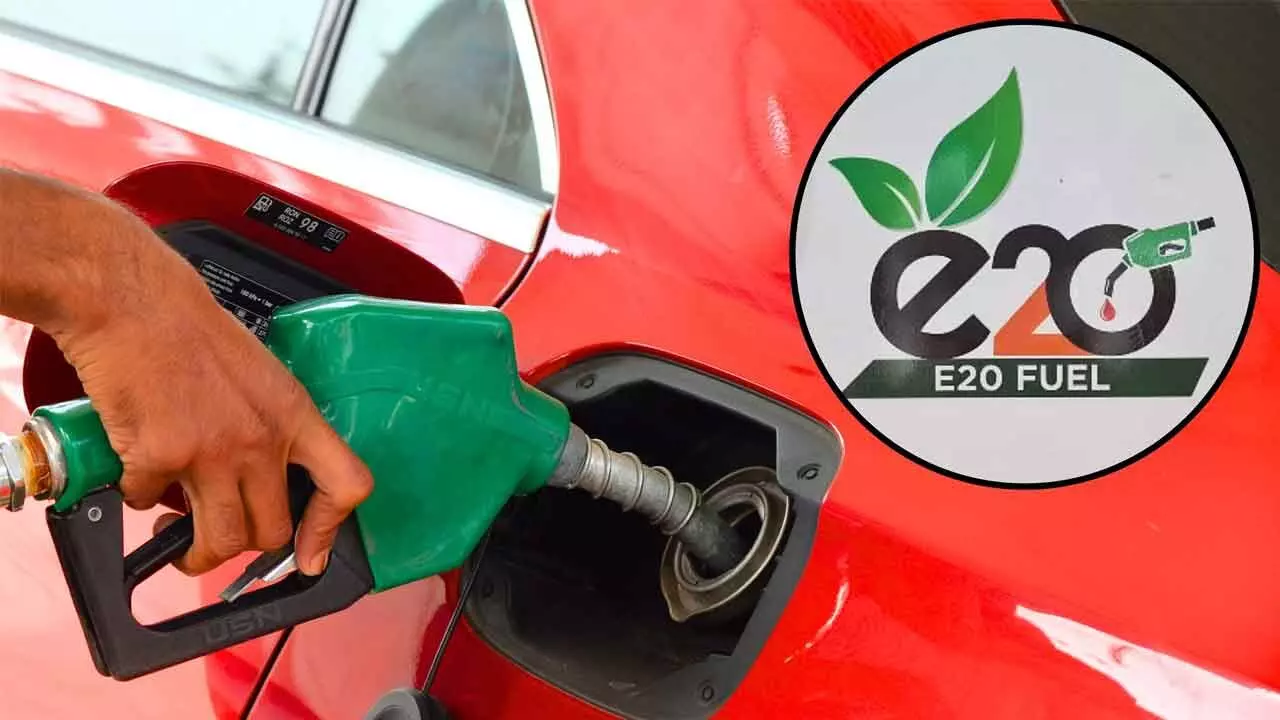Are Indian Vehicles Ready for E20 Petrol? Users Flag Fuel Efficiency and Engine Woes
Car owners report fuel efficiency dips and maintenance issues as India adopts 20% ethanol-blended petrol.
E20 Petrol Policy vs. Consumer Reality: Drop in Mileage, Higher Costs Reported

India’s shift to 20% ethanol-blended petrol (E20) has sparked a surge of complaints from vehicle owners, citing falling mileage, sluggish performance, and costly repairs. While the government hails the policy as an energy milestone, drivers are grappling with unexpected consequences.
Mileage drops and engine trouble ⚠️
Several motorists report a noticeable decline in fuel efficiency:
♦ Rahul Vaidya, owner of a 2019 Volkswagen Vento, said mileage plunged from 11–12 kmpl to 7–8 kmpl, with his car feeling “heavier” and less responsive. His vehicle required critical part replacements and engine recalibration to restore performance.
♦ Mahesh Nair, who drives a 2021 Suzuki Brezza, experienced a 20% mileage drop, jerky drives, and weak acceleration. ECU tuning and E20-compatible parts fixed the issue — but only after unexpected expenses.
Service centres confirm that non-E20-compliant cars — the majority on Indian roads — are showing gasket wear, engine degradation, and the need for frequent repairs. Industry experts estimate a 7% average fuel efficiency loss, though official studies by ARAI and the Petroleum Ministry suggest a smaller 1–6% impact.
Government policy vs. consumer reality 🏛️ → 🚗
The ethanol programme is key to India’s energy security:
♦ New vehicles must be E20-ready from April 2023, with strict enforcement from April 2025.
♦ Nine out of ten cars today are E10-ready at best, designed only for 10% ethanol.
♦ Hero MotoCorp has warned older two-wheelers may need modifications, while automakers hint warranties may not hold for cars running on higher ethanol blends.
Consumers, however, appear largely unaware of the transition. “There’s a glaring gap in awareness. OEMs must educate car buyers. Consumers are stakeholders too,” said Naveen Soni, former Lexus India president.
Industry response and global comparisons 🌎
Oil companies say fuel additives are being deployed to limit corrosion. Experts cite Brazil’s flex-fuel success, but warn India’s rollout has been more abrupt, leaving users unprepared.
According to ARAI Director Reji Mathai, field trials showed “no abnormalities,” though some plastics and elastomers degraded during testing.
Economic gains vs. consumer pain 💰 vs. 🛠️
The ethanol push has delivered major benefits for India:
♦ ₹1.44 lakh crore saved in foreign exchange since 2014
♦ 245 lakh metric tonnes of crude substituted
♦ CO₂ emissions cut equal to planting 30 crore trees
♦ Farmer income boost, with sugarcane payments expected to touch ₹40,000 crore this year
But for vehicle owners, the short-term reality is higher fuel bills and repair costs. “E20 has a lower heat content than pure petrol, so some efficiency loss is inevitable,” said IV Rao, Distinguished Fellow at TERI. “The extent varies by manufacturer and model — but consumers must not be left in the dark.”

